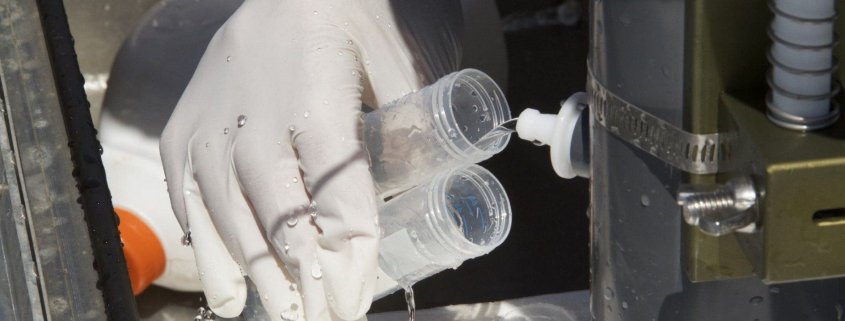

The Adult Salmon Diet Program is a citizen science initiative of the Juanes Lab at the University of Victoria. The program, which involves recreational anglers collecting samples, is filling important knowledge gaps in our understanding of salmon feeding – including winter diets – and providing insights into forage fish distribution and ecology.
The program works like this: citizen scientists anglers collect and freeze the digestive tract (stomach and intestine) of a retained Coho or Chinook, and this gets bagged up with a label that includes the date and location of where the fish was caught, species, length, and whether the fish was clipped or unclipped and dropped off at designated location (locations can be found with more information in this article). The samples are then sent to researchers at UVic where the contents within the guts are sorted and identified. At the end of the season, the volunteers that provided their contact details will receive a summary report and updates on the program.
The results along with the accompanying information provided by the anglers, give us picture of what Coho and Chinook are feeding on throughout the seasons as well as the size and type of forage fish present in those locations. Since sample collection is undertaken voluntarily from all over, the program has proven to be a cost-effective way to monitor and track changes over time in the Salish Sea ecosystem. From a research and conservation perspective, the results are relevant to better management and protection of forage fish stocks and habit. The program is also valuable because it engages with the recreational fishing community and increases the understanding and enthusiasm for the science.
The program is primarily funded by PSF with additional support from Fisheries and Oceans Canada, WWF Canada, Project Watershed, Islander Precision Reels and AP Tackleworks. It is a combined effort of many individual fishers, project partners and depot locations, and students and research assistants.
Learn more about the program in this story map and explore the data to date in this map dashboard from the PSF Marine Data Centre, or watch postdoctoral researcher Will Duguid explain the study:
Image credit: Juanes Lab UVic
